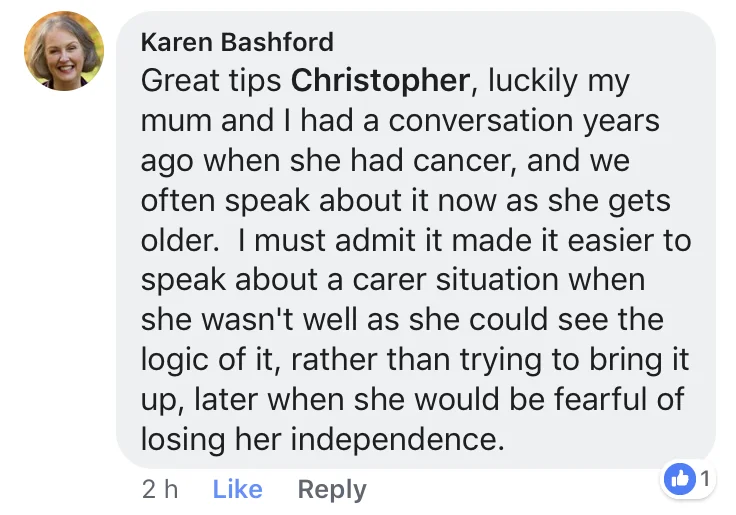CareChooser - Series 1
Dementia Series 2 - Episode 1 - What is dementia? Alzheimer’s = Man Utd. Vascular Dementia = Liverpool. Dementia = Football Teams
Dementia Series 2 - Episode 2 - Dementia. A Social Disease. Who pays?
Dementia Series 2 - Episode 3 - The POSITIVES of dementia
Dementia Series 2 - Episode 4 - The Brain
Dementia Series 2 - Episode 5 - The Fairy-light Analogy
Dementia Series 2 - Episode 6 - How simple are simple things?
Dementia Series 2 - Episode 7 - My views - You’re with me or you’re not.
TOP TIPS - Episode 1 - Top Tips - Having difficulty getting mum/dad/child dressed?
TOP TIPS - Episode 2 - Funding for home care equipment
TOP TIPS - Episode 3 - Avoiding falls amongst the elderly
TOP TIPS - Episode 4 - Get Prescriptions delivered
TOP TIPS - Episode 5 - How to talk to parents about care
TOP TIPS - Episode 6 - How to talk to parents about care - BONUS TIP
TOP TiPS - Episode 7 - Say ‘living with dementia’
Dear Christopher - Episode 1 - Full Post - Having difficulty getting mum/dad/child dressed?
Dear Christopher - Episode 2 - Home Care Equipment
Dear Christopher - Episode 3 - Dementia, Death & Grief
Dear Christopher - Episode 4 - Dementia and Personality Change
Dear Christopher - Episode 5 - Dementia Friends Sessions
Dear Christopher - Episode 6 - Can we have direct contact with the carer?
Behaviour - Episode 1 - Think Small! Focus on the smallest behaviours.
Behaviour - Episode 2 - The 1 reasons why there’s behaviour.
Home Care Questions - Series 1
Home Care Questions - Episode 1 - Home Care - What should I consider?
Home Care Questions - Episode 2 - Home Care - What should I look for in a carer?
Home Care Questions - Episode 3 - Home Care - Which fall alarm should I buy?
Home Care Questions - Episode 4 - Home Care - How do I make the care a success?
Home Care Questions - Episode 5 - Home Care - How do the carer profiles work?
Home Care Questions - Episode 6 - Home Care - What is a Local Care Expert?
Home Care Questions - Episode 7 - Home Care - What should I consider? Part 2
Home Care Questions - Episode 8 - Home Care - How do you talk to parents about care?
Dementia - Episode 1 - How Alzheimer’s is caused - Alzheimer’s disease
Dementia - Episode 2 -Dementia DOESN’T affect the part of the brain controls EMOTIONS and FEELINGS as much as factual information. - Dementia
Dementia - Episode 3 -Dementia is not just about losing your memory - Dementia
Dementia - Episode 4 -How vascular dementia is like cars, roads and traffic - Vascular dementia
Conditions - Episode 1 - Multiple Sclerosis
Conditions - Episode 2 - Dementia
Conditions - Episode 3 - Diabetes
Conditions - Episode 4 - Alzheimer's
Conditions - Episode 5 - Vascular Dementia
Conditions - Episode 6 - Parkinson's







